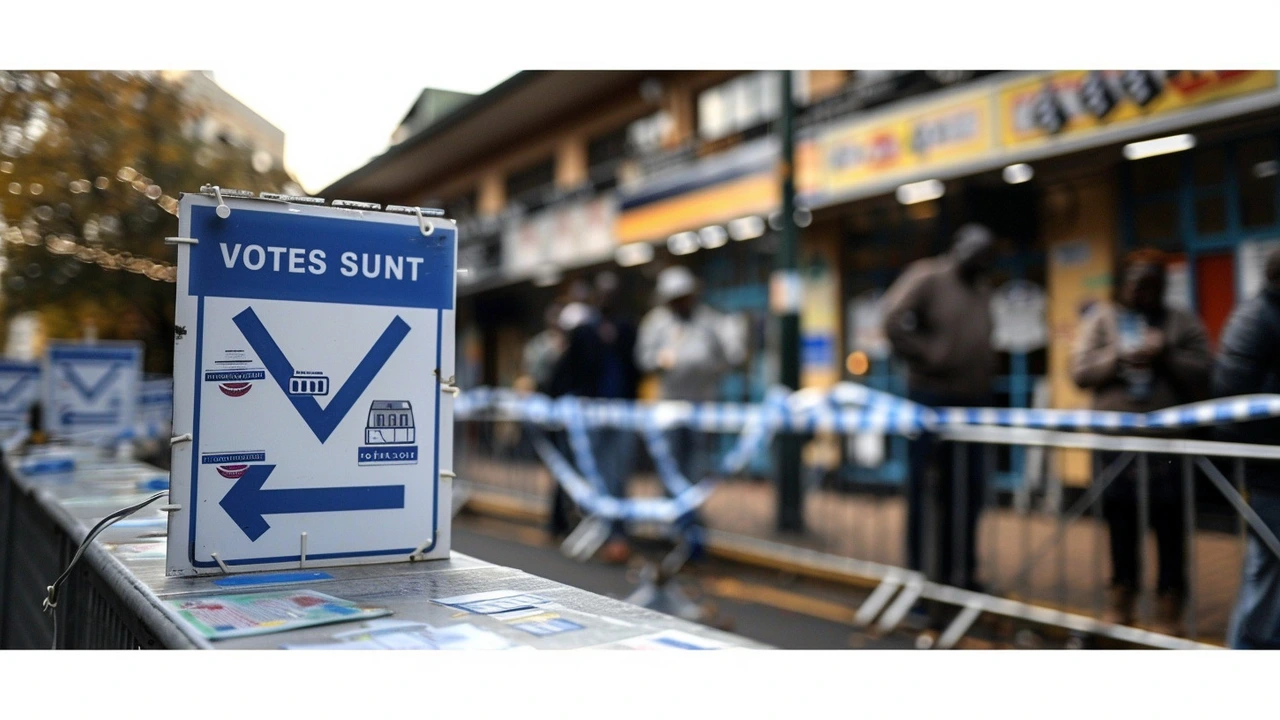- EFCC Achieves Over 3,000 Convictions and Recovers Over N156 Billion in Anti-Corruption Drive May 30, 2024
- Malema-Shivambu Fallout Casts Shadow Over EFF's Future Leadership Aug 16, 2024
- Roma Aims for Comeback Against Leverkusen in Crucial Europa League Semifinal Match May 9, 2024
- Bayern Munich Faces Hefty Transfer Fee to Secure Vincent Kompany as Manager May 23, 2024
- Deadpool & Wolverine: A Cinematic Goldmine with Explosive On-Screen Chemistry Jul 27, 2024
Gender equality in education: what works and how you can act
Gender equality isn't a slogan — it affects whether a child finishes school, gets a job and lives with dignity. On this page we track news, policies and real-world steps that raise girls' and boys' chances equally across Africa. You’ll find clear actions for teachers, parents, local leaders and policy makers.
Start by looking at the school day. Do classrooms welcome both girls and boys? Simple fixes like separate safe toilets, access to menstrual supplies, and gender-responsive teaching cut absenteeism and dropout. Schools that train teachers to spot bias and to use inclusive lesson plans see more balanced participation in science, sports and leadership roles.
What policy makers and schools can change now
Policy changes don’t need to be huge to matter. Targeted scholarships for girls in secondary school, conditional cash transfers to families, and quotas for female teachers in rural schools all shift the balance fast. Invest in data: tracking enrollment, completion and subject choices by gender helps leaders spot hotspots and measure progress. Also make school safety a priority — clear reporting channels for harassment and quick responses protect students and keep them learning.
Curriculum matters. Textbooks and classroom examples should show women and men in diverse roles. Career guidance that highlights trades, STEM and leadership for girls reduces the idea that some jobs are 'only for boys.' When families see role models from their communities, attitudes change.
How communities and individuals can push change
You don’t need to be a politician to help. Mentoring a teenage girl, volunteering at a local after-school program, or supporting a community group that teaches life skills makes a direct difference. If you’re a parent, encourage both sons and daughters to share chores and to dream about higher education. Local radio shows and community meetings are great places to challenge harmful norms without sounding preachy.
Media and local newsrooms also shape ideas about gender. When outlets cover girls’ success stories, girls see possibilities; when they report on policy gaps, leaders feel pressure to act. Support independent local journalism that highlights gender issues — that’s one of the quickest ways to turn private problems into public policy.
If you work for an NGO or school board, focus funding and training on proven interventions: teacher training, menstrual health, safe transport and conditional support for school attendance. Test solutions at small scale, measure results, then scale what works. Simple monitoring — attendance records, feedback from girls, and community meetings — keeps programs honest and effective.
Gender equality is practical work, not just good intent. Small changes in schools, clear policies, and steady community pressure add up. Follow our latest stories and guides on African EduNews Tree to see which programs are working in your country and how you can get involved.
Ensuring Gender Equality: Commission for Gender Equality Observes Upcoming Elections
- Katlego Sean Mahaye
- May 29, 2024
The Commission for Gender Equality (CGE) is set to monitor the National and Provincial Elections to ensure gender rights are upheld at polling stations. CGE Chairperson Advocate Nthabiseng Sepanya–Mogale highlighted their accreditation by the Electoral Commission (IEC). Their primary goal is to ensure elections are free, fair, and devoid of gender discrimination with a focus on various vulnerable groups.
